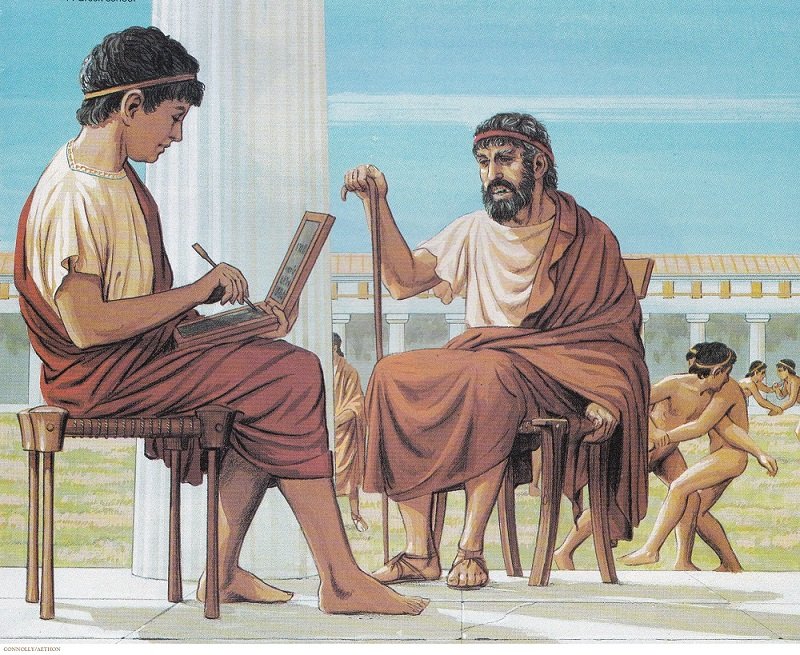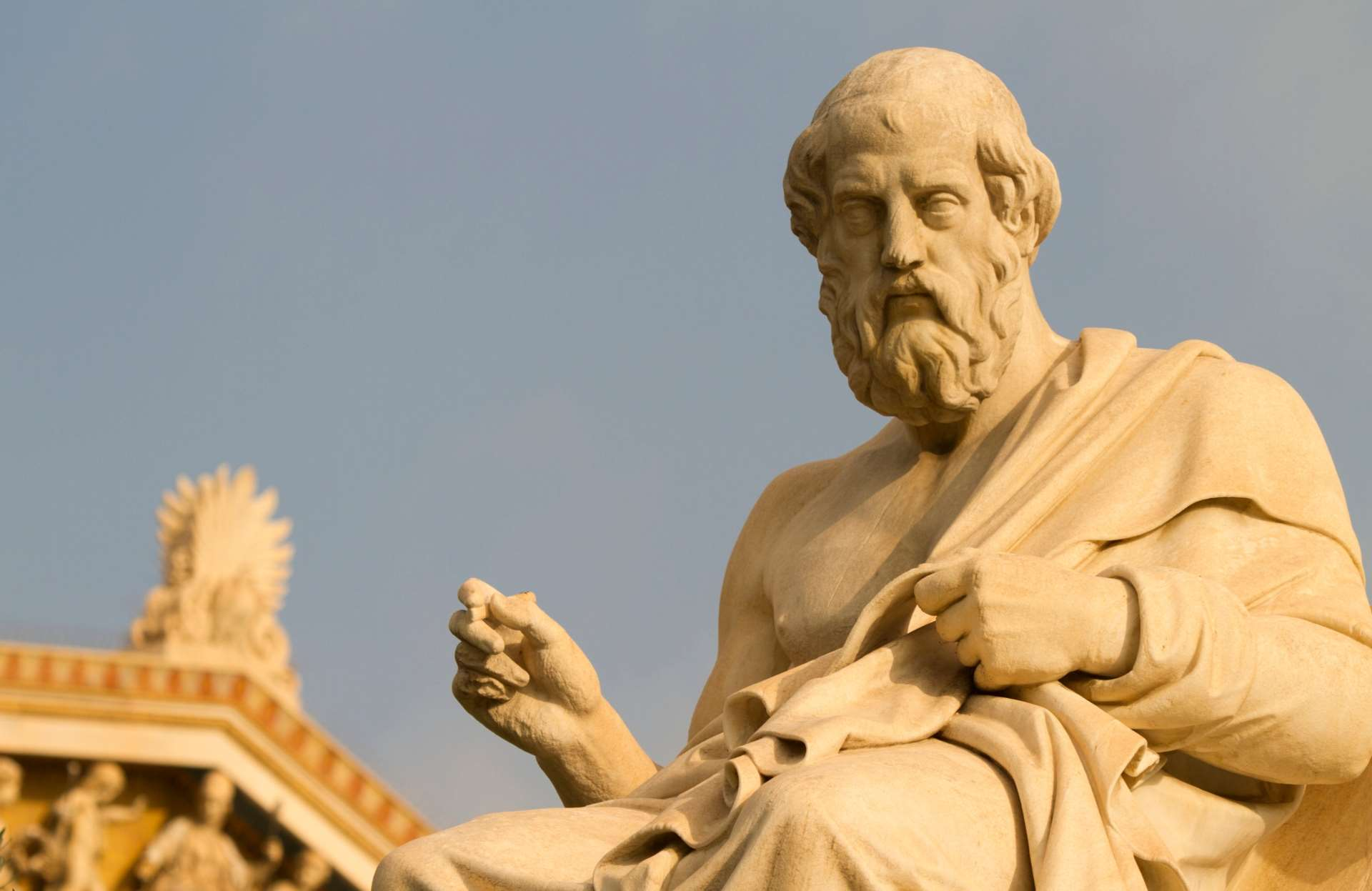The Ancient Greeks loved to learn, and education was a priority for them. However, education was determined by gender and class. In its very early history, only wealthy males were educated. They usually had paid tutors when they were young boys to teach them reading, writing, math and military training. As they matured, they were taught other subjects. Most children began their education at age seven, but it was restricted to the elite who could afford to pay for it.
Two types of education: formal and informal
In the early days of Ancient Greece, formal education was gained by attending a public school or having a private tutor. Women, slaves and children from poor families did not receive a formal education. Some informal education was offered by unpaid teachers and did not happen in a public setting.
Mothers in Ancient Greece would instruct their daughters in domestic chores like cooking, sewing and caring for children. In wealthy households, girls were taught how to manage the household.
Schools and tools
Teachers tended to teach wherever they could, whether this was in the homes of wealthy patrons, their own homes, in the city hall or in rooms at the public baths.
Students in Ancient Greece wrote on wooden boards covered with wax and used a stylus or wooden pen with a sharp end. They would use the flat end for “rubbing out.” From time to time, the wax was melted and re-applied. Students used an abacus for calculating.
Assignment help with Ancient Greece History
Students studying the history of Ancient Greece as part of their education may need assignment writing help. The life of a student can be chaotic, and it can be difficult to stick to deadlines for writing assignments. It helps if they reach out for help with writing assignments. An assignment done by AssignmentBro can help them learn how a professional writer tackles a subject and structures an essay. They can improve their writing skills and score high in class while impressing the teachers.
Enlightening the mind
Education in Ancient Greece was limited to a few key disciplines considered important for producing ideal citizens. They believed that education should make you a better person. The emphasis on education was different in the different city-states.
Grammatistes taught students writing and grammar, but they also taught literature, linguistics and philosophy. Political science was also seen as important in forming young citizens.
In Athens, where there was less focus on the military, subjects like literature and rhetoric were important. Rhetoric was an important subject as being able to speak well was considered essential in a democracy. Boys had to master rhetoric so they could enter politics and public affairs. Private tutors known as sophists had mastered this skill and would teach it to the children of the elite for a significant fee.
Physical fitness
Physical fitness was considered a virtue in Ancient Greece, and Paidotribes took boys through rigorous exercises in a variety of disciplines. Ancient Greece was made up of city-states that were often warring, so boys were prepared for war. Wrestling and javelin throwing took priority in physical education.
A boy growing up in Sparta would spend his whole education doing military exercises and preparing for war. Even girls in Sparta were given light military duties and expected to exercise so they could produce healthy sons to serve in the army.
Learning music
Both boys and girls learned music and dance for acceptance among the elite. The kitharistes were responsible for teaching music which was considered an important subject because it was connected to history and ethics. Students who could master playing the lyre were thought of as accomplished learners.
Development of schools
By the 5th century B.C., the Athenians had developed schools that were not that different from the ones today. Younger students would learn to read, write and do math. Older students learned subjects like geometry and philosophy. At the age of 14, rich Athenian children would go to the Assembly and Gymnasium to watch older men and learn from them.
Student entrepreneurs in Greece today can come up with rewarding business ideas, including tutoring students, just like in Ancient Greek times.
Conclusion
The structure of the education system in Ancient Greece supported the social and political life of the time. Young boys were taught to be good citizens, and exercising the right to vote was an expression of this. Young girls were excluded from mainstream education and directed towards domesticity. In the city-states of Ancient Greece, many went uneducated. It was only the elite that benefited from receiving an education.
Author's Bio
James Collins is a lead writer and editor for an online essay writing service known for his absolute high-quality academic papers. He’s popular for his video content as well, which covers education, technology, science and engineering. His free time is for cycling, walking on the beach and playing with his lovely pet dogs.









